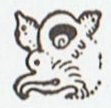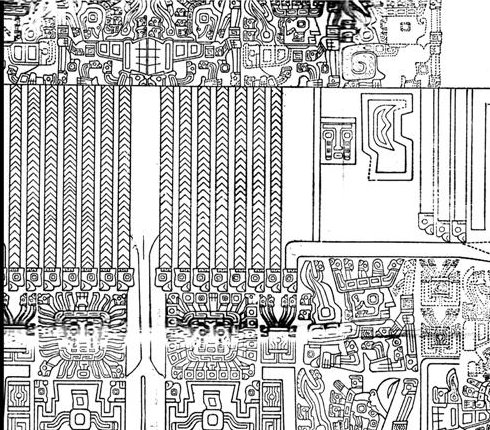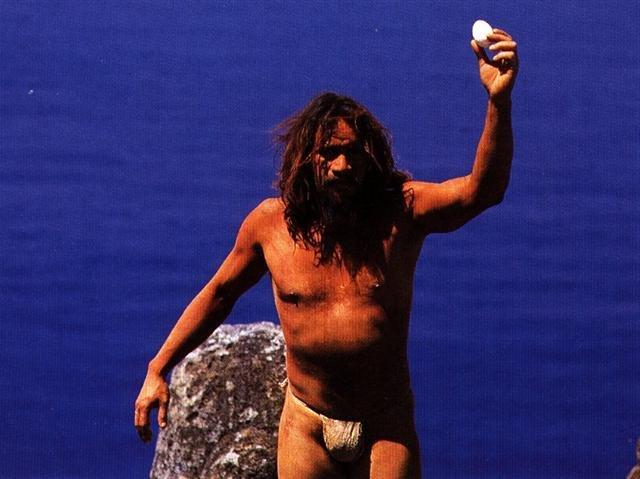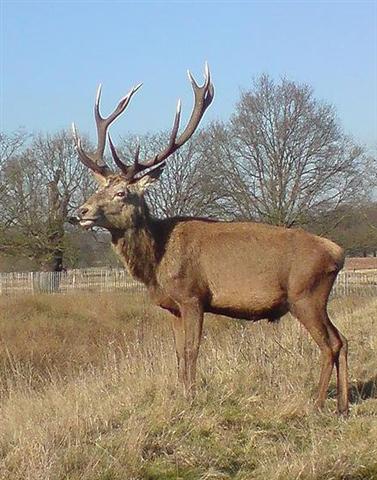The bird list seems to refer to how at this time of the year flocks of various kinds of birds arrived to Easter Island, thereby announcing the return of life (after the winter solstice month). ... The evening of 23 June, St. John's Eve, is the eve of celebration before the Feast Day of Saint John the Baptist. The Gospel of Luke (Luke 1:36, 56-57) states that John was born about six months before Jesus; therefore, the feast of John the Baptist was fixed on 24 June, six months before Christmas Eve ... 30 days after St. John's Eve and the feast of John the Baptist was the place for ruru - taiko: Sula cyanops ... It should be pointed out that the combined name ruru-taiko refers in MAO. to a black petrel (Procellaria parkinsoni). There are no cultural data available for ruru, which seems to be derived from PPN. *lulu 'owl'... There are no cultural data available for ... taiko (compare RAR. taiko 'black petrel', MGV. tiaku 'petrel?, omen of death', but the textual association of taiko and spirits should be dept in mind ...
Petrel ... small sea-bird of the genus Procellaris. XVII. The significance of the early vars. pitteral, pittrel is obscure, but as early as 1703 Dampier has the sp. petrel and derives the name from that of St. Peter in allusion to his 'walking upon the Lake of Gennesareth' (cf. Matt. xiv 30), an expl. supported by the Norw. Søren Peders, Peders-fugl, G. Petersvogel ... (English Etymology)
' They were all manu tara birds calling out from the corner of the island. Tara. 1. Thorn: tara miro. 2. Spur: tara moa. 3. Corner; te tara o te hare, corner of house; tara o te ahu, corner of ahu. Vanaga. (1. Dollar; moni tara, id.) 2. Thorn, spike, horn; taratara, prickly, rough, full of rocks. P Pau.: taratara, a ray, a beam; tare, a spine, a thorn. Mgv.: tara, spine, thorn, horn, crest, fishbone. Mq.: taá, spine, needle, thorn, sharp point, dart, harpoon; taa, the corner of a house, angle. Ta.: tara, spine, horn, spur, the corner of a house, angle. Sa.: tala, the round end of a house. Ma.: tara, the side wall of a house. 3. To announce, to proclaim, to promulgate, to call, to slander; tatara, to make a genealogy. P Pau.: fakatara, to enjoin. Mq.: taá, to cry, to call. 4. Mgv.: tara, a species of banana. Mq.: taa, a plant, a bird. Ma.: tara, a bird. 5. Ta.: tara, enchantment. Ma.: tara, an incantation. 6. Ta.: tara, to untie. Sa.: tala, id. Ha.: kala, id. Churchill. In Samoa tala was the round end of the house. ... The dark brown tern with a round tail is called tuao ... Ao, the world ... And only one day separated the Nourisher from the Embrace;
The embrace (Āshleshā) seems to refer to the close embrace between Father Sky and Mother Earth at the very beginning of time..
... The sky that floats above the earth, // great Rangi nui, the spread-out space, dwelt with the red glow of dawn // and the moon was made; the great sky above us // dwelt with the shooting rays and the sun sprang forth, // they were thrown up above us as the chief eyes of heaven. Then the heavens became light, // the early dawn, the early day, // the mid-day, the blaze of day from sky. Then Rangi nui, the Sky, dwelt with Papa tu a nuku, the Earth, and was joined to her, and land was made. But the offspring of Rangi and Papa, who were very numerous, were not of the shape of men, and they lived in darkness, for their parents were not yet parted. The Sky still lay upon the Earth, no light had come between them. The heavens were ten i number, and the lowest layer, lying on the Earth, made her unfruitful. Her covering was creeping plants and rank low weed, and the sea was all dark water, dark as night. The time when these things were seemed without end, as it is stated in the tradition: From the first division of time unto the tenth, and to the hundredth, and to the thousandth, all was barren, and in vain did she seek her offspring in the likeness of the day, or of the night. At length the offspring of Rangi and Papa, worn out with continual darkness, met together to decide what should be done about their parents, that man might arise. 'Shall we kill our parents, shall we slay them, our father and our mother, or shall we separate them? 'they asked. And long did they consider in the darkness: The night, the night, the day, the day, the seeking out, the adzing out from the nothing, the nothing. Their seeking thought also for their mother, that man might arise. Behold, this is the word, the largeness, the length, the height of their thought. At last Tu matauenga, the fiercest of the offspring of Sky and Earth and the god of war, spoke out. Said Tu: 'It is well. Let us kill them.' But Tane mahuta, god and father of the forests and all things that inhabit them, answered: 'No, not so. It is better to rend them apart, and to let the Sky stand far above us and the Earth lie below here. Let the Sky become a stranger to us, but let Earth remain close to us as our nursing mother.' The other sons, and Tu the war god among them, saw wisdom in this and agreed with Tane, all but one. This one, that now forever disagreed with all his brothers, was the god and father of winds and storms, Tawhiri matea. Tawhiri, fearing that his kingdom would be overthrown, did not wish his parents to be torn apart. So while five sons agreed, Tawhiri was silent and would not [speak], he held his breath. And long did they consider further. At the end of a time no man can measure the five decided that Rangi and Papa must be forced apart, and they began by turns to attempt this deed. First Rongo ma Tane, god and father of the cultivated food of men, rose up and strove to force the heavens from the earth. When Rongo had failed, next Tangaroa, god and father of all things that live in the sea, rose up. He struggled mightily, but had no luck. And next Haumia tiketike, god and father of uncultivated food, rose up and tried without success. So then Tu matauenga, god of war, leapt up. Tu hacked at the sinews that bound the Earth and Sky, and made them bleed, and this gave rise to ochre, or red clay, the sacred colour. Yet even Tu, the fiercest of the sons, could not with all his strength sever Rangi from Papa. So then it became the turn of Tane mahuta. Slowly, slowly as the kauri tree did Tane rise between the Earth and Sky. At first he strove with his arms to move them, but with no success. Then he placed his shoulders against the Earth his mother, and his feet against the Sky. Soon, and yet not soon, for the time was vast, the Sky and Earth began to yield. The sinews that bound them stretched and ripped. With heavy groans and shrieks of pain, the parents of the sons cried out and asked them why they did this crime, why did they wish to slay their parents' love? Great Tane thrust with all his strength, which was the strength of growth. Far beneath him he pressed the Earth. Far above he thrust the Sky, and held them there. As soon as Tane's work was finished the multituide of creatures were uncovered whom Rangi and Papa had begotten, and who had never known light. Now rose up Tawhiri, the god of winds and storms, who all this time had held his breath. Great anger moved him now, and this was Rangi's wish. Tawhiri, who feared that his kingdom would be overthrown, feared also that the Earth would become too fair and beautiful. For he was jealous now, jealous of all that Tane had procured. For Tane was the author of the day - Of the great day, // of the long day, of the clear day, // of the day driving away night, of the day making all things distinct, // of the day making everything bright, of the day driving away gloom, // of the hot, sultry day, of the day shrouded in darkness. And so Tawhiri followed Rangi to the realm above, and consulted with him there. And with his father's help Tawhiri begot his numerous turbulent offspring, the winds and storms. He sent them off between the Sky and the Earth, one to the south, another to the east, another to the north-east ... We can compare with Manuscript E: ... They all sat down and rested [on the plain of Oromanga], when suddenly they saw that a turtle had reached the shore and had crawled up on the beach. He [Ira] looked at it and said, 'Hey, you! The turtle has come on land!' He said, 'Let's go! Let's go back to the shore.' They all went to pick up the turtle. Ira was the first one to try to lift the turtle - but she didn't move. Then Raparenga said, 'You do not have the necessary ability. Get out of my way so that I can have a try!' Raparenga stepped up and tried to lift the turtle - but Raparenga could not move her. Now you spoke, Kuukuu: 'You don't have the necessary ability, but I shall move this turtle. Get out of my way!' Kuukuu stepped up, picked up the turtle, using all his strength. After he had lifted the turtle a little bit, he pushed her up farther. No sooner had he pushed her up and lifted her completely off the ground when she struck Kuukuu with one fin. She struck downward and broke Kuukuu's spine.The turtle got up, went back into the (sea) water, and swam away. All the kinsmen spoke to you (i.e. Kuukuu): 'Even you did not prevail against the turtle!' They put the injured Kuukuu on a stretcher and carried him inland. They prepared a soft bed for him in the cave and let him rest there. They stayed there, rested, and lamented the severely injured Kuukuu. Kuukuu said, 'Promise me, my friends, that you will not abandon me!' They all replied, 'We could never abandon you!' They stayed there twenty-seven [27] days in Oromanga. Everytime Kuukuu asked, 'Where are you, friends?' they immediately replied in one voice, 'Here we are!' They all sat down and thought. They had an idea and Ira spoke, 'Hey, you! Bring the round stones (from the shore) and pile them into six heaps of stones!' One of the youths said to Ira, 'Why do we want heaps of stone?' Ira replied, 'So that we can all ask the stones to do something.' They took (the material) for the stone heaps (pipi horeko) and piled up six heaps of stone at the outer edge of the cave. Then they all said to the stone heaps, 'Whenever he calls, whenever he calls for us, let your voices rush (to him) instead of the six (of us) (i.e., the six stone heaps are supposed to be substitutes for the youths). They all drew back to profit (from the deception) (? ki honui) and listened. A short while later, Kuukuu called. As soon as he had asked, 'Where are you?' the voices of the stone heaps replied, 'Here we are!' All (the youths) said, 'Hey, you! That was well done!' ...
|
||||||||||||||||||||||||||||||||||||||||||||||||||||||||||||||||||||||||||||||||||||||||||||||||||||||||||||||||||||||||||||||||||||||||||||||||||||||||||||||||||||||||||||||||||||||||||||||||||||||||||||||||||||||||||||||||||||||








